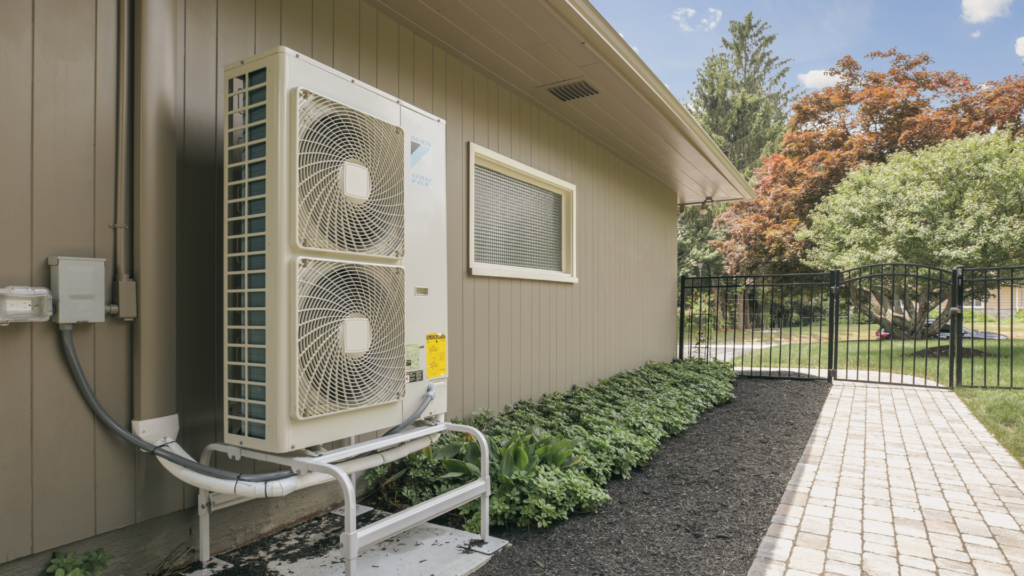The HVAC industry has seen consolidation — but it’s not over yet
A combination of consumer dynamics, fragmentation, and investor timelines will drive more consolidation

Image: WPR
A few years ago, when the U.S. shut down, consumers were stuck at home, received stimulus checks from the government, and — while interest rates fell to near 0% — decided to invest in their homes.
-
HVAC contractors prospered, and a frenzy of M&A activity ensued. Investor-backed platforms went on shopping sprees, and valuations jumped.
-
“There was a lot of, ‘Hey, a couple of years ago, your business was worth 6-7x [EBITDA], but I’m gonna get you 10-12x now,’” SF&P Advisors’ Brian Cohen told Homepros.
Zoom in: In 2022, there were 219 total HVAC transactions done — almost six times more than just a few years prior, in 2018, according to Capstone Partners.
-
But since then, interest rates have shot up, activity has settled, and multiples have come down.
-
“If you had a business in 2020 or 2021 that wasn’t perfect, you still could have gotten an amazing valuation. Today, the demand for that business has fallen off a little bit. Buyers are more intentional about the pitches they swing at,” said Bristlecone Trail’s Jason Haar.
Naturally, this raises a question: Is the party over?
-
From our perspective, it’s not — for three reasons: 1) today’s consumers need contractors, 2) most of the market is still independent, and 3) investor-backed platforms need to keep growing.
1. Consumers. Millennials are a growing percentage of the total homeowner base, and it’s believed that they prefer “do it for me” (DIFM) work, over DIY — a positive for contractors.
-
More older Americans are choosing to age at home. “Folks who are older… didn't like what they saw. They're not going to a nursing home. They are going to stay in their home as long as possible,” a William Blair analyst noted.
-
Plus, according to Angi, the average U.S. home is over 40 years old. As homes age, so does their equipment, which means that — using a 15-year average lifespan for air conditioners — a third replacement cycle is around the corner for many homes.
2. Independents. There are over 100,000 HVAC contractors in the U.S., and most are still independently operated. “There’s been so much ‘consolidation’ that’s happened, but it still probably isn’t even 10% [of the market],” Cohen added.
-
A similar dynamic exists, geographically. “In any given MSA, only 20% of the market is what I’d consider sponsor-backed, scaled players — the rest are mom and pops,” Redwood Services’ Shaun Hardick told Homepros.
-
“If you compare that to pest control, that number’s like 60%,” he added.
3. Platforms. Some industry players are getting big. While financials aren’t publicly disclosed, it’s rumored that Wrench Group, Apex Service Partners, and Turnpoint Services, for example, each generate over $100 million in EBITDA, annually.
-
Because these platforms, among others, are backed by larger financial sponsors, they’ll eventually need to return money to investors by finding new buyers — who will then expect to repeat the process, driving the need for continued growth.
-
Aside from organically, there’s only one way to grow: More acquisitions.
Of note: As platforms scale, options become limited, because only so many buyers can afford nine-figure+ businesses. One option, however, is the public market. No publicly traded residential HVAC, plumbing, or electrical company exists today.
-
If and when a public debut happens, the multiple at which that company trades will have downstream effects on the entire industry.
-
Even independent contractors not looking to sell would benefit from a well-traded public company — and vice versa.
The bottom line: “There’s a lot of runway [left],” Haar noted. A public transaction or not, the combination of consumer dynamics, a fragmented market, and the need for platforms to keep growing, makes for an almost sure bet that consolidation is far from over.
📬 Get our stories in your inbox
Keep reading
Air Pros lines up buyers in bankruptcy case, docs show
The company has designated successful bidders for each of its business units, as part of its Chapter 11 bankruptcy case, per court records
HVAC distributor sales pop 14% to close out 2024
December marked the best sales growth month of 2024 for HARDI distributors, according to its latest Trends report
Regional cooling demand diverges in March, data shows
Some areas of the U.S. experienced a warmer March than others, according to the latest national weather data


